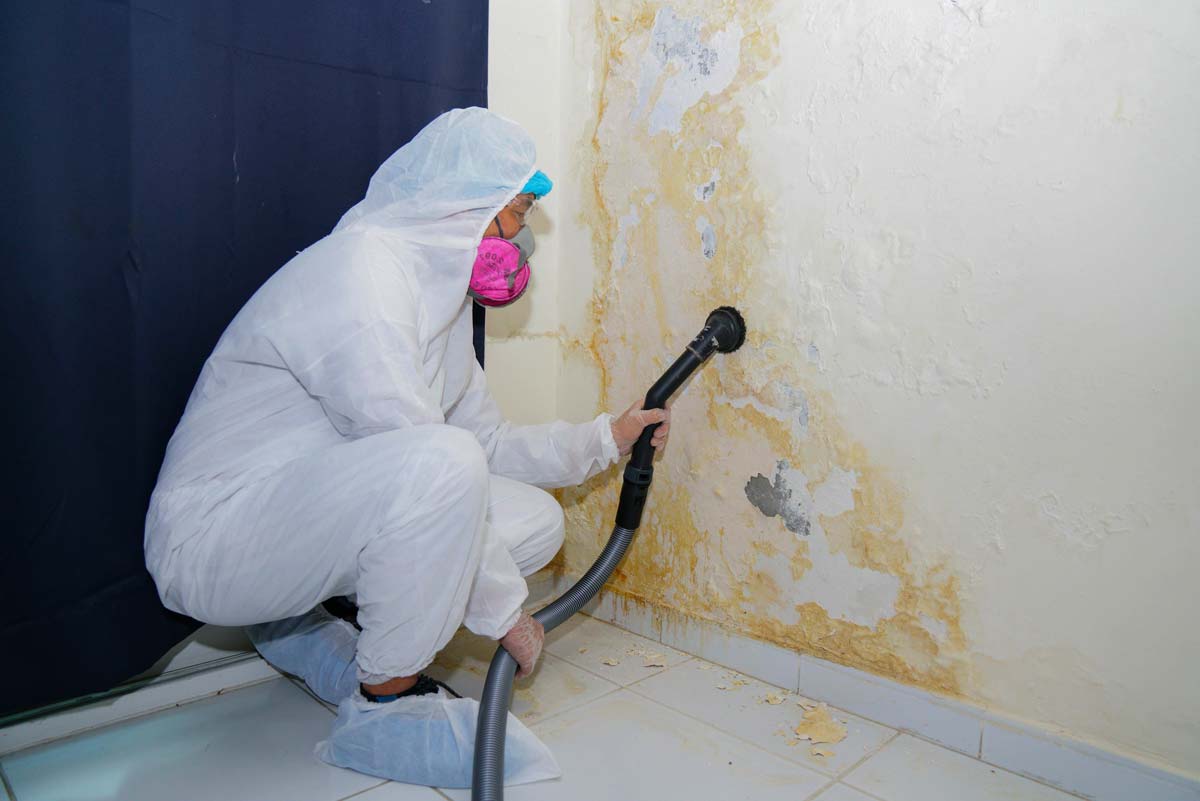Who is responsible for mold prevention and remediation in rental premises in West Virginia?
In West Virginia, landlord-tenant laws state that a landlord must keep rental properties clean and habitable. It includes the prevention of mold growth on the property.
Tenants should keep their homes habitable and notify the landlord of any problems that can cause mold.
Landlord rights and responsibilities in West Virginia
- Keep the property safe and habitable.
- Make all repairs for problems reported within a reasonable time.
- Keep all electrical and plumbing appliances in good working condition.
- Meet all required local housing regulations.
- Lawful evictions.
- Collect rent in agreed-upon amounts and time.
- Supply heat and both hot and cold water.
Tenant rights and responsibilities in West Virginia
- To live in habitable conditions.
- Timely repair for all problems you report.
- Fix all damage that is your fault.
- Pay the required amount of rent at the agreed time.
- Use provided garbage disposal receptacles.
- Ensure quiet enjoyment of the property for other neighbors.
- No retaliation from the landlord for exercising legal rights.
- Keep the premises clean and habitable.
How long does a West Virginia landlord have to repair mold?
In West Virginia, landlords have 14 days upon receiving notice of the presence of mold to have it repaired.
Landlords are required to disclose the presence of mold to new tenants. They should ensure that the mold is remediated before new tenants occupy the home.
If the mold grows in your home, you have the option to hire a professional and deduct the repair cost from the subsequent month’s rent.
Always give notice to your landlord before you embark on repairs.
Resource: See other states mold laws here
Mold disclosure law in West Virginia
West Virginia does not have a law that requires a formal disclosure statement from a landlord or seller to tenants or buyers.
Federal law also requires property sellers to disclose the presence of lead paint for homes built before 1978.
Can you break your rental lease in West Virginia due to mold?
In West Virginia and many states, tenants are legally not allowed to break the rental lease if the mold is their fault.
When tenants notice problems that can cause mold, they should report them to the landlord immediately.
Leaking pipes and taps, floods, and spills are causes of mold in the house. Report these to your landlord before they cause more problems in your unit.
Document the problems in photos and inform your landlord in writing. Also, record all the discussions and promises that the landlord offers.
Some landlords may allow tenants to break their lease if the mold affects their health. Others may require a doctor’s note as proof of health problems before allowing tenants to break the lease.
Constructive eviction is when you break your lease when the unit is no longer habitable because the landlord refused to fix the problems.
If the landlord sues you for the rest of the rent, you must prove in court that the house was uninhabitable, the mold was not your fault, and that you had notified your landlord, and they did not fix the house.
You can legally break your lease in West Virginia to start active military duty or if the landlord discriminates against you.
Can a West Virginia tenant withhold rent due to mold?
West Virginia tenants cannot withhold rent to compel the landlord to fix some damage in the unit.
However, if the landlord does not repair the problems after a reasonable time, the tenant can repair and deduct the costs from the rent. The tenant must also provide the landlord with a receipt for the cost of repairs
Can a West Virginia tenant seek justice in court due to mold?
In West Virginia, a tenant can sue the landlord for mold when;
- The landlord refused to fix water leaks reported before the mold appeared.
- If you have spent money in a hospital or on medication due to mold exposure.
- Lost income due to a condition caused by mold exposure.
- If you have spent any money to remediate the mold.
- For mold-related damage to your property not covered by your renters’ insurance.
- For pain and suffering caused by the health effects of mold.
- The mold presence is not your fault.













